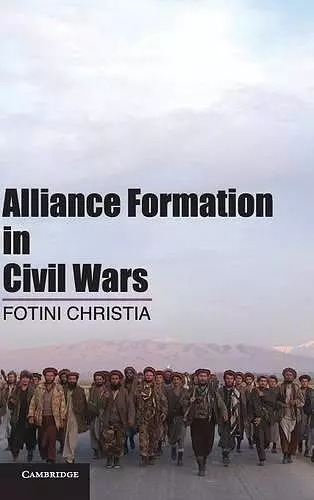Alliance Formation in Civil Wars
Format:Hardback
Publisher:Cambridge University Press
Published:12th Nov '12
Currently unavailable, and unfortunately no date known when it will be back
This hardback is available in another edition too:
- Paperback£26.99(9781107683488)

This book argues power balances, rather than shared identities, explain why warring Afghan groups aligned with and double-crossed each other.
This book explains why Afghan warring groups constantly aligned with and double-crossed each other and develops a theory on behaviors in multiparty civil wars in general. It shows intergroup alliances and intra-group fractionalization are determined by the distribution of relative power among warring groups, rather than ethnicity, race, ideology or religion.Some of the most brutal and long-lasting civil wars of our time involve the rapid formation and disintegration of alliances among warring groups, as well as fractionalization within them. It would be natural to suppose that warring groups form alliances based on shared identity considerations - such as Christian groups allying with Christian groups - but this is not what we see. Two groups that identify themselves as bitter foes one day, on the basis of some identity narrative, might be allies the next day and vice versa. Nor is any group, however homogeneous, safe from internal fractionalization. Rather, looking closely at the civil wars in Afghanistan and Bosnia and testing against the broader universe of fifty-three cases of multiparty civil wars, Fotini Christia finds that the relative power distribution between and within various warring groups is the primary driving force behind alliance formation, alliance changes, group splits and internal group takeovers.
'Although some may argue that Christia's neo-realist framework is not comprehensive because it undervalues the ideological and psychological dimensions of civil wars, the author's argument is both persuasive and fundamental to understanding alliance formation and disintegration. The author's observation in the book's conclusion that the alliance shifts in Iraq's Anbar province in favour of the Iraqi government (and then against it) have been driven by relative power considerations seems to be borne out by events since the book's publication. Anyone interested in or responsible for policies aimed at resolving multi-party civil wars stands to gain from close consideration of Christia's argument.' H. R. McMaster, Survival
- Winner of Distinguished Book Award, Ethnicity, Nationalism and Migration Section, International Studies Association 2014
- Winner of Gregory M. Luebbert Award, American Political Science Association 2013
ISBN: 9781107023024
Dimensions: 229mm x 152mm x 24mm
Weight: 640g
360 pages